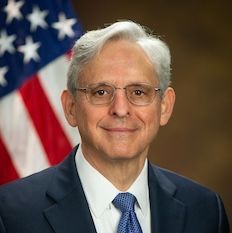
One might think that U.S. Attorney General Merrick Garland has it out for U.S. airlines. Since taking office in March 2021, he has filed two lawsuits against three carriers, in the name of what he says is protecting competition for the American public.
The first suit went after the partnership between American Airlines and JetBlue in New York and Boston, dubbed the Northeast Alliance. The Department of Justice called it a "de facto merger" between the carriers in those cities and said that it violated Section 1 of the Sherman Act because it increased fares and reduced choice for American travelers.
After a two-month trial that ended in November 2022, Massachusetts District Judge Leo Sorokin ruled on May 19, 2023, that the partnership must be dismantled.
"Today's decision is a win for Americans who rely on competition between airlines to travel affordably," Garland said in a statement after the ruling was handed down. "The Justice Department will continue to protect competition and enforce our antitrust laws in the heavily consolidated airline industry and across every industry."
American planned to appeal the decision, but JetBlue decided to wash its hands of the deal as it had another battle on which to focus.
More than two months before the Northeast Alliance decision, Garland lobbed another lawsuit at the airline industry, this time trying to block the proposed $3.8 billion acquisition by JetBlue of Spirit Airlines. The suit claimed the acquisition would violate Section 7 of the Clayton Act on the grounds that it would lessen competition.
"As our complaint alleges, the merger of JetBlue and Spirit would result in high fares and fewer choices for tens of millions of travelers, with the greatest impact felt by those who rely on what are known as ultra-low-cost carriers in order to fly," Garland said in a statement when the suit was filed on March 7. "Companies in every industry should understand by now that this Justice Department will not hesitate to enforce our antitrust laws and protect American consumers."
The trial for the JetBlue-Spirit suit began in Boston on Oct. 31 and is ongoing. Should the DOJ succeed a second time and quash the proposed deal, JetBlue is on the line to pay Spirit shareholders $470 million in a reverse breakup fee. JetBlue posted a $153 million net loss for the third quarter.